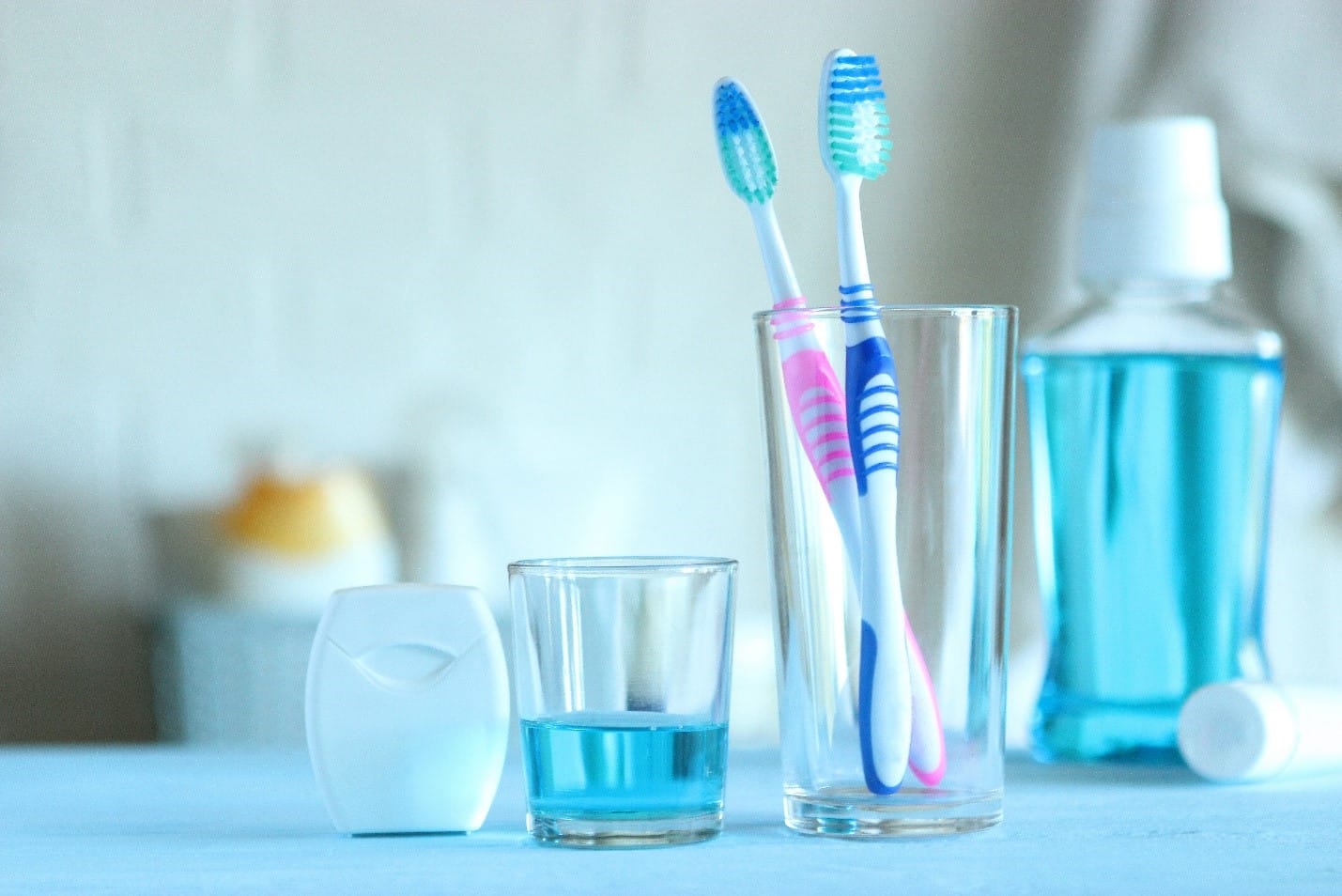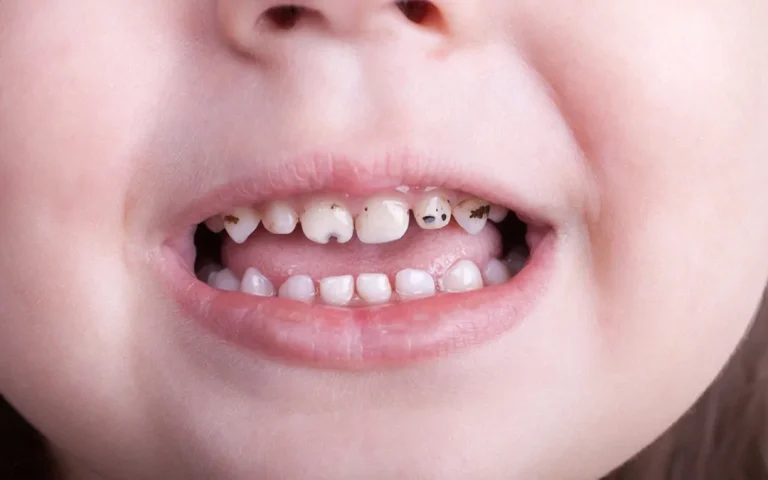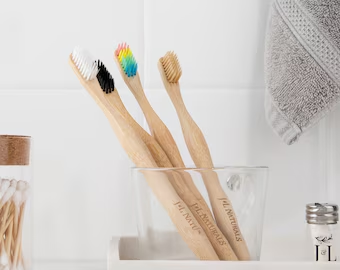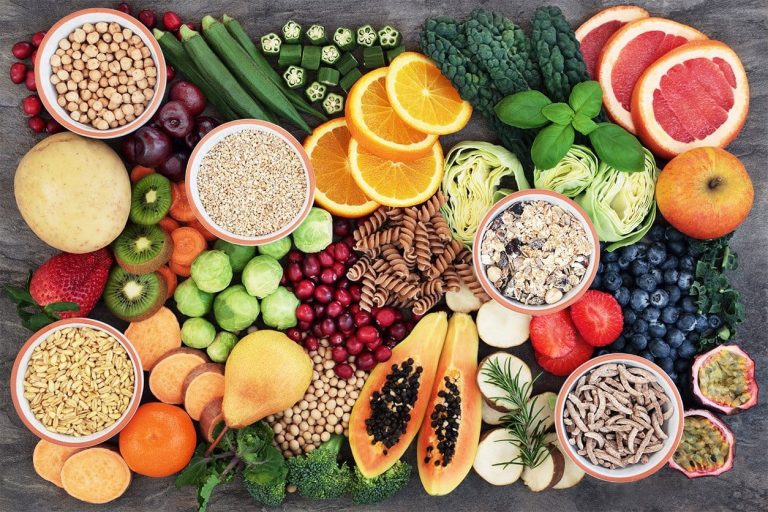Is Mouthwash Necessary? The Pros and Cons of Daily Rinses
Mouthwash has long been a staple in many people’s oral care routines, promising fresher breath, cleaner teeth, and healthier gums. But is it truly necessary, or is it just an extra step in your daily hygiene regimen? With so many options on the market—ranging from alcohol-based formulas to natural alternatives—it’s easy to feel overwhelmed by the choices and conflicting advice.
While some swear by the benefits of mouthwash, others argue that it may disrupt the natural balance of your mouth or even mask underlying dental issues. So, how do you know if mouthwash is right for you?
In this article, we’ll explore the pros and cons of daily mouthwash use, examine the different types available, and discuss alternatives for those who prefer to skip the rinse. By the end, you’ll have a clearer understanding of whether mouthwash deserves a spot in your bathroom cabinet—and how to use it effectively if it does. Let’s dive in!
Benefits of Mouthwash
Mouthwash isn’t just a quick fix for bad breath—it can offer several tangible benefits for your oral health. Here’s a closer look at why many people incorporate it into their daily routines:
1. Freshens Breath Instantly
One of the most obvious benefits of mouthwash is its ability to freshen your breath. Whether you’ve just eaten a garlic-heavy meal or woke up with morning breath, a quick swish of mouthwash can leave your mouth feeling minty and clean. This is especially helpful for social situations or when you’re on the go.
2. Reduces Plaque and Gingivitis
Many therapeutic mouthwashes contain antibacterial ingredients like chlorhexidine or cetylpyridinium chloride, which help reduce plaque buildup and prevent gum disease (gingivitis). By targeting harmful bacteria, these rinses can complement brushing and flossing to keep your gums healthy.
3. Strengthens Enamel with Fluoride
Some mouthwashes are fortified with fluoride, a mineral known for its cavity-fighting properties. Fluoride helps strengthen tooth enamel, making it more resistant to decay. If your toothpaste doesn’t contain fluoride, a fluoride mouthwash can be a great addition to your routine.
4. Reaches Areas Brushing and Flossing Might Miss
While brushing and flossing are essential, they don’t always reach every nook and cranny in your mouth. Mouthwash can help clean hard-to-reach areas, such as between teeth and along the gumline, providing an extra layer of protection against bacteria and food particles.
5. Convenient and Easy to Use
Let’s face it—mouthwash is incredibly convenient. It requires no special technique or tools, making it an easy addition to your daily routine. For busy individuals, it’s a quick way to boost oral hygiene without much effort.
While these benefits make mouthwash an appealing option, it’s important to remember that it’s not a replacement for brushing and flossing. Instead, think of it as a supplementary step to enhance your overall oral care routine.
Next, we’ll explore the potential drawbacks of mouthwash to give you a balanced perspective.
Potential Drawbacks of Mouthwash
While mouthwash offers several benefits, it’s not without its downsides. Understanding the potential drawbacks can help you make an informed decision about whether daily rinsing is right for you. Here are some key concerns to consider:
1. Disrupting the Oral Microbiome
Your mouth is home to a delicate balance of bacteria, both good and bad. Overusing mouthwash, especially alcohol-based formulas, can disrupt this balance by killing off beneficial bacteria along with the harmful ones. This imbalance may lead to issues like dry mouth or even an overgrowth of harmful bacteria in the long run.
2. Masking Underlying Dental Issues
Mouthwash can temporarily mask bad breath, but it doesn’t address the root cause. Chronic bad breath (halitosis) is often a sign of deeper issues, such as gum disease, cavities, or even digestive problems. Relying on mouthwash to freshen your breath without addressing these underlying issues can delay necessary treatment.
3. Dry Mouth and Irritation
Alcohol-based mouthwashes are known to cause dry mouth for some users. Saliva plays a crucial role in maintaining oral health by neutralizing acids and washing away food particles. A dry mouth can increase the risk of cavities and gum disease. Additionally, the alcohol content can irritate sensitive gums or oral tissues, leading to discomfort.
4. Over-Reliance on Mouthwash
Some people may mistakenly believe that using mouthwash alone is enough to maintain good oral hygiene. However, mouthwash is not a substitute for brushing and flossing. Skipping these essential steps in favor of rinsing can lead to plaque buildup, cavities, and other dental problems.
5. Potential for Staining
Certain mouthwashes containing chlorhexidine, while effective at reducing bacteria, can cause tooth staining or a temporary alteration in taste perception with prolonged use. This is something to be aware of if you’re considering long-term use of therapeutic mouthwashes.
6. Not Suitable for Everyone
Children under the age of six, pregnant women, and individuals with specific medical conditions may need to avoid certain types of mouthwash. For example, fluoride mouthwash is not recommended for young children who might accidentally swallow it.
While these drawbacks don’t mean you should avoid mouthwash altogether, they highlight the importance of using it wisely. In the next section, we’ll explore the different types of mouthwash and their specific uses to help you choose the right one for your needs.
Types of Mouthwash and Their Specific Uses
Not all mouthwashes are created equal. Depending on your oral health needs, you may benefit from a specific type of mouthwash. Here’s a breakdown of the most common types and their intended uses:
1. Antiseptic Mouthwash
- Purpose: Designed to kill bacteria and reduce plaque, gingivitis, and bad breath.
- Key Ingredients: Often contains alcohol, chlorhexidine, or cetylpyridinium chloride.
- Best For: Individuals with gum disease or those prone to plaque buildup.
- Considerations: Alcohol-based formulas can cause dry mouth or irritation for some users.
2. Fluoride Mouthwash
- Purpose: Strengthens tooth enamel and helps prevent cavities.
- Key Ingredients: Contains fluoride, a mineral that protects against tooth decay.
- Best For: People at high risk of cavities or those who don’t get enough fluoride from their toothpaste or water.
- Considerations: Not recommended for young children who might swallow it.
3. Cosmetic Mouthwash
- Purpose: Primarily used to freshen breath and provide a clean, minty feeling.
- Key Ingredients: Often contains flavoring agents and mild antiseptics.
- Best For: Those looking for a quick breath freshener without therapeutic benefits.
- Considerations: Does not address underlying oral health issues like plaque or gum disease.
4. Natural or Alcohol-Free Mouthwash
- Purpose: Provides a gentler alternative to traditional mouthwashes, often using plant-based ingredients.
- Key Ingredients: May include aloe vera, tea tree oil, xylitol, or baking soda.
- Best For: Individuals with sensitive mouths, dry mouth, or those who prefer natural products.
- Considerations: May not be as effective at killing bacteria as antiseptic mouthwashes.
5. Whitening Mouthwash
- Purpose: Helps remove surface stains and brighten teeth over time.
- Key Ingredients: Contains mild abrasives or hydrogen peroxide.
- Best For: Those looking to enhance the appearance of their smile.
- Considerations: Results are subtle and may take time to become noticeable.
6. Prescription Mouthwash
- Purpose: Used to treat specific oral health conditions, such as severe gum disease or oral infections.
- Key Ingredients: Often contains higher concentrations of antiseptics or antibiotics.
- Best For: Individuals with advanced dental issues, as recommended by a dentist.
- Considerations: Should only be used under professional supervision.
How to Choose the Right Mouthwash
- Assess Your Needs: Are you looking to freshen breath, prevent cavities, or treat gum disease?
- Check the Ingredients: Look for active ingredients that align with your goals (e.g., fluoride for cavity prevention).
- Consider Sensitivity: If you have a sensitive mouth or dry mouth, opt for alcohol-free or natural formulas.
- Consult Your Dentist: Your dentist can recommend the best type of mouthwash based on your oral health history.
By understanding the different types of mouthwash, you can make a more informed choice that suits your specific needs. In the next section, we’ll explore alternatives to alcohol-based mouthwashes for those seeking gentler options.
Alternatives to Alcohol-Based Mouthwashes
If you’re concerned about the potential side effects of alcohol-based mouthwashes—such as dry mouth, irritation, or disruption of your oral microbiome—there are plenty of gentler alternatives to consider. These options can still support your oral health while being kinder to your mouth. Here are some popular alternatives:
1. Saltwater Rinse
- How It Works: Dissolve half a teaspoon of salt in a cup of warm water and swish it around your mouth for 30 seconds.
- Benefits: Saltwater is a natural antiseptic that can reduce bacteria, soothe gum inflammation, and promote healing after dental procedures.
- Best For: Those with sensitive gums or recovering from oral surgery.
2. Oil Pulling
- How It Works: Swish a tablespoon of coconut oil, sesame oil, or olive oil in your mouth for 10–20 minutes, then spit it out.
- Benefits: Oil pulling is an ancient practice believed to remove toxins, reduce bacteria, and improve oral health. Coconut oil, in particular, has antimicrobial properties.
- Best For: Individuals looking for a natural, holistic approach to oral care.
3. Herbal Mouthwashes
- How It Works: Use a mouthwash made with natural ingredients like aloe vera, tea tree oil, or peppermint oil.
- Benefits: These ingredients are gentle on the mouth while still offering antibacterial and anti-inflammatory properties.
- Best For: Those with sensitive mouths or a preference for natural products.
4. Baking Soda Rinse
- How It Works: Mix one teaspoon of baking soda in a cup of water and use it as a rinse.
- Benefits: Baking soda neutralizes acids in the mouth, freshens breath, and can help whiten teeth over time.
- Best For: Individuals looking for a simple, cost-effective alternative.
5. Xylitol Mouthwash
- How It Works: Use a mouthwash containing xylitol, a natural sweetener that inhibits the growth of cavity-causing bacteria.
- Benefits: Xylitol helps reduce plaque, prevent cavities, and promote saliva production, which is beneficial for dry mouth.
- Best For: Those concerned about cavities or dry mouth.
6. Hydrogen Peroxide Rinse
- How It Works: Dilute 3% hydrogen peroxide with equal parts water and use it as a rinse.
- Benefits: Hydrogen peroxide is a mild antiseptic that can kill bacteria and whiten teeth.
- Best For: Individuals looking for a disinfecting rinse, but use sparingly to avoid irritation.
7. Green Tea Rinse
- How It Works: Brew a cup of green tea, let it cool, and use it as a mouthwash.
- Benefits: Green tea contains antioxidants and compounds that can reduce bacteria, fight bad breath, and promote gum health.
- Best For: Those seeking a soothing, antioxidant-rich option.
Why Consider Alternatives?
- Gentler on the Mouth: Many alternatives are free from alcohol and harsh chemicals, making them suitable for sensitive mouths.
- Natural Ingredients: If you prefer to avoid synthetic ingredients, these options often rely on plant-based or food-grade components.
- Customizable: You can tailor these alternatives to your specific needs, whether it’s soothing inflammation, freshening breath, or whitening teeth.
While these alternatives can be effective, it’s important to remember that they may not provide the same level of protection as therapeutic mouthwashes. Always consult your dentist to ensure your chosen method aligns with your oral health goals.
How to Decide If Mouthwash Is Right for You
With so many options and opinions on mouthwash, it can be challenging to determine whether it’s a necessary addition to your oral care routine. Here are some key factors to consider when deciding if mouthwash—or an alternative—is right for you:
1. Assess Your Oral Health Needs
- Bad Breath: If you struggle with persistent bad breath, a mouthwash designed to freshen breath or target bacteria may help.
- Plaque and Gum Health: If you’re prone to plaque buildup or have early signs of gum disease, an antiseptic or fluoride mouthwash could be beneficial.
- Cavities: If you’re at high risk for cavities, a fluoride mouthwash can provide extra protection.
- Sensitivity: If you have a sensitive mouth or dry mouth, opt for alcohol-free or natural alternatives.
2. Consider Your Current Routine
- Are you already brushing twice a day and flossing daily? If not, focus on improving these habits before adding mouthwash.
- Mouthwash should complement—not replace—brushing and flossing. If you’re using it as a quick fix, you might be missing out on the full benefits of a thorough oral care routine.
3. Consult Your Dentist
Your dentist can provide personalized recommendations based on your oral health history and specific needs. For example:
- If you have gum disease, they might recommend a prescription-strength mouthwash.
- If you’re prone to cavities, they may suggest a fluoride rinse.
- If you have dry mouth or sensitivity, they can guide you toward gentler alternatives.
4. Experiment with Different Options
- Try different types of mouthwash (e.g., antiseptic, fluoride, natural) to see which works best for you.
- If traditional mouthwash doesn’t suit you, explore alternatives like saltwater rinses, oil pulling, or herbal mouthwashes.
5. Listen to Your Body
- Pay attention to how your mouth feels after using mouthwash. If you experience dryness, irritation, or other discomfort, it might be a sign to switch to a gentler formula or alternative.
- If your breath stays fresh and your mouth feels healthy, you’re likely on the right track.
6. Use Mouthwash Correctly
- Follow the instructions on the label, including how much to use and how long to swish.
- Avoid eating or drinking for at least 30 minutes after using a fluoride mouthwash to maximize its benefits.
- Don’t overuse mouthwash—once or twice a day is usually sufficient.
7. Weigh the Pros and Cons
- Reflect on the benefits (e.g., fresher breath, reduced plaque) and potential drawbacks (e.g., disrupting oral microbiome, dry mouth) to determine if mouthwash aligns with your goals.
Final Thoughts
Mouthwash can be a valuable tool in your oral care arsenal, but it’s not a one-size-fits-all solution. By considering your unique needs, consulting your dentist, and experimenting with different options, you can make an informed decision about whether to incorporate mouthwash—or an alternative—into your routine.
Conclusion
So, is mouthwash necessary? The answer depends on your individual oral health needs and preferences. While mouthwash can offer benefits like fresher breath, reduced plaque, and added cavity protection, it’s not a must-have for everyone. For some, the potential drawbacks—such as disrupting the oral microbiome or causing dryness—may outweigh the benefits.
The key takeaway is that mouthwash should be used as a supplement to—not a replacement for—brushing and flossing. If you decide to incorporate it into your routine, choose a type that aligns with your goals, whether that’s fighting bacteria, strengthening enamel, or simply freshening your breath. And if traditional mouthwash isn’t for you, there are plenty of gentler alternatives, from saltwater rinses to oil pulling, that can support your oral health.
Ultimately, the best way to determine if mouthwash is right for you is to consult your dentist. They can provide personalized recommendations based on your unique needs and help you create an oral care routine that keeps your smile healthy and bright.
Actionable Tips:
- Evaluate Your Needs: Are you looking to freshen breath, prevent cavities, or treat gum disease? Choose a mouthwash or alternative that matches your goals.
- Start Small: If you’re new to mouthwash, try using it once a day and see how your mouth responds.
- Explore Alternatives: If alcohol-based mouthwashes cause discomfort, experiment with natural or DIY options like saltwater rinses or herbal mouthwashes.
- Consult Your Dentist: Get professional advice to ensure your oral care routine is tailored to your specific needs.
- Don’t Skip the Basics: Remember, no amount of mouthwash can replace brushing twice a day and flossing daily.
By making informed choices and prioritizing your oral health, you can decide whether mouthwash deserves a place in your daily routine—and enjoy the confidence of a healthy, fresh smile.
FAQs
Is mouthwash a necessary part of oral hygiene?
Mouthwash isn’t essential for everyone. It can offer benefits but should supplement, not replace, brushing and flossing.
What are the primary benefits of using mouthwash?
Mouthwash freshens breath, reduces plaque and gingivitis, strengthens enamel with fluoride, and reaches areas that brushing and flossing might miss.
What are the potential drawbacks of using mouthwash daily?
Possible drawbacks include disrupting the oral microbiome, masking underlying dental issues, causing dry mouth and irritation (especially alcohol-based types), potential for staining, and not being suitable for everyone.
Can mouthwash replace brushing and flossing?
No, mouthwash is not a substitute for brushing and flossing. These are essential for removing plaque and preventing cavities. Mouthwash is a supplementary step.
What types of mouthwash are available, and what are their specific uses?
Types include antiseptic (kills bacteria), fluoride (strengthens enamel), cosmetic (freshens breath), natural/alcohol-free (gentle), whitening (removes surface stains), and prescription (treats specific conditions).
Are alcohol-based mouthwashes bad for you?
Alcohol-based mouthwashes can cause dry mouth and irritation for some users by disrupting the natural balance of bacteria in your mouth.
What are some alternatives to alcohol-based mouthwash?
Alternatives include saltwater rinse, oil pulling, herbal mouthwashes, baking soda rinse, xylitol mouthwash, hydrogen peroxide rinse, and green tea rinse.
How do I choose the right mouthwash for my needs?
Assess your oral health needs, check the ingredients, consider sensitivity, and consult your dentist for personalized recommendations.
Who should avoid using mouthwash?
Children under six, pregnant women, and individuals with specific medical conditions may need to avoid certain types of mouthwash.
How often should I use mouthwash?
Once or twice a day is usually sufficient. Follow the instructions on the label, and don’t overuse it.







